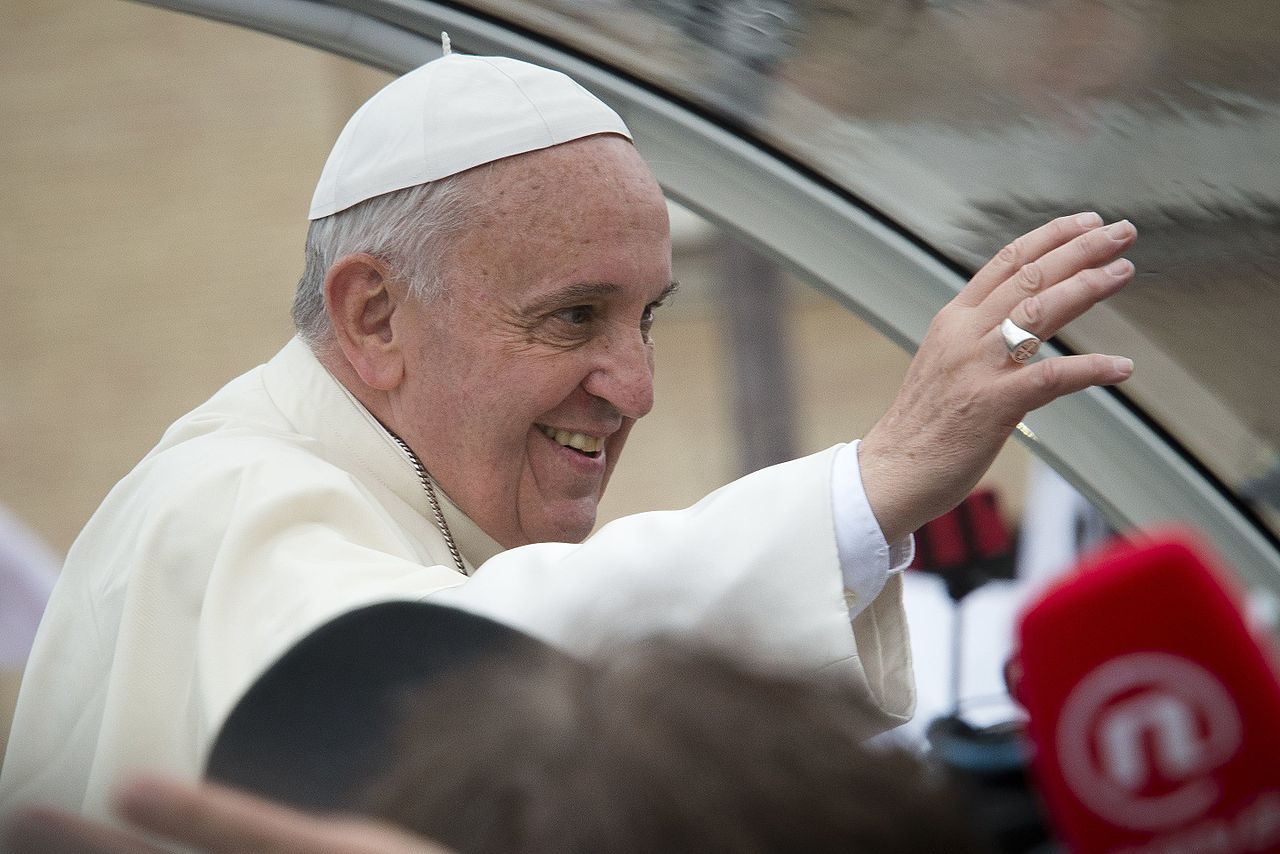Pope Francis’ recent Christmas message, ‘Urbi et Orbi’, was a meditation on the roots of fraternity in the incarnation:
What does that Child, born for us of the Virgin Mary, have to tell us? What is the universal message of Christmas? It is that God is a good Father and we are all brothers and sisters.
This truth is the basis of the Christian vision of humanity. Without the fraternity that Jesus Christ has bestowed on us, our efforts for a more just world fall short, and even our best plans and projects risk being soulless and empty.
For this reason, my wish for a happy Christmas is a wish for fraternity.
The Pope is certainly right to call us to reflect upon the fatherhood of God and the brotherhood of man during the Christmas season. So many of our most cherished experiences of the Christmas season center on joyous celebration and solidarity with others in our families, churches, and communities.
Much of the rest of the Pope’s Christmas message focused on places in the world where those types of celebration and solidarity are more difficult to come by due to enduring conflict. The Pope mentioned particularly two nations close to my own heart: Venezuela and Nicaragua. What struck me as strange was that he failed to mention the sources of the conflicts there which I have followed so closely.
On January 5th twenty Latin American leaders, led by Noble laureate and former Costa Rican President Oscar Arias, sent an open letter to Pope Francis which stated plainly the situation in Venezuela and Nicaragua:
As we expressed in a previous message to your Holiness, we understand your concern for the suffering that today, without distinction, all Venezuelans and now Nicaraguans face. The former are victims of oppression by a militarized narco-dictatorship, which has no qualms about systematically violating the rights to life, liberty and personal integrity and, as a result of deliberate public policies and unbridled corruption, has scandalized the world and that have subjected them to widespread famine and lack of medicine. The latter case, in the middle of the year, there were 300 killed and 2,500 wounded in a wave of repression.
We are concerned that the call for harmony on the part of your Holiness which, given the current context, can be understood by the victimized nations that they should come to agreement with their victimizers. In particular, in the case of Venezuela, the government has caused the flight of 3 million refugees, which the United Nations predicts will reach 5.9 million in 2019.
I would commend the entire letter to you. The letter quotes St. Pope John XXIII’s first encyclical Ad Petri Cathedram (On Truth, Unity, and Peace, in a Spirit of Charity) which teaches the need for both truth and truth-telling to reach any genuine unity and peace:
All the evils which poison men and nations and trouble so many hearts have a single cause and a single source: ignorance of the truth—and at times even more than ignorance, a contempt for truth and a reckless rejection of it. Thus arise all manner of errors, which enter the recesses of men’s hearts and the bloodstream of human society as would a plague. These errors turn everything upside down: they menace individuals and society itself.
We pray with Pope Francis for a harmonious, virtuous, and prosperous future for all Venezuelans and Nicaraguans. We pray that it may come the only way it can, through telling and acknowledging the truth which President Arias and the other signatures of the open letter to the Pope make plain.
(Image: ‘Canonization of Saint John XXIII and Saint John Paul II, 2014’ by JEFFREY BRUNO/ALETEIA CC BY-SA 2.0)
